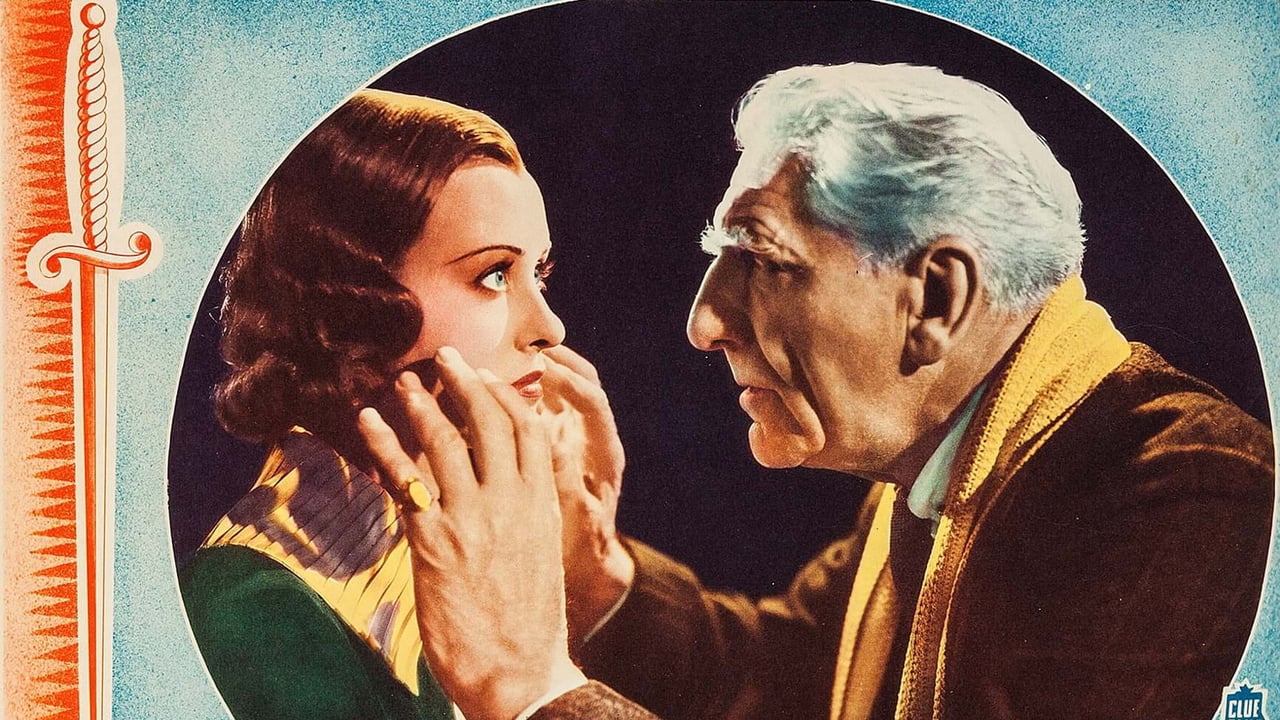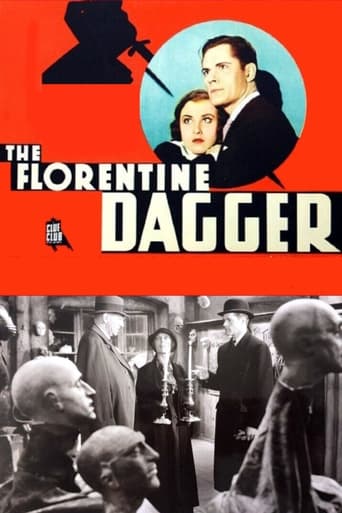

A modern descendant of the Borgia's grapples with what he thinks are murderous family genes, which leads to a mysterious family scandal, a real murder, and a surprise ending.Oddball little movie, not quite a whodunit since the suspects are too under-developed to pick through. The result is more like an early noir with Cesare (Woods) struggling against dark forces and maybe fate, too. In fact, I'll bet the lighting bill didn't exceed 5 bucks. Also, I'm with the reviewer pointing out that Woods lacks the expressive depth to play the central character effectively. Too bad, because that would have made the movie more memorable. On the other hand, there's the craggy-faced Aubrey Smith as a commanding head doctor, and a most un- cop-like Robert Barrat as chief cop. And what about actress Eily Malyon whose close-ups are enough to scare off both Karloff and Lugosi.All in all, I'm not sure the movie knows where it wants to go. The threads do not blend well. Still, there are some creepy moments that manage to compensate. Then too there's that surprise ending where justice happily triumphs over law. Looks like the screenplay (1935) managed to sneak this by a newly installed Production Code (1934). Anyway, my guess is that when Barrat leaves the airport he's headed to the Playboy Club no matter what he's told the wife.
... View MoreDonald Woods plays a descendant of the infamous Borgia family who believes he is predestined for evil. When the father of the girl he loves (Margaret Lindsay) is murdered, Woods worries he might be responsible. I'm a big fan of Margaret Lindsay. She's one of my favorite actresses from this period that doesn't get much recognition and she's the primary reason I watched this. She doesn't have a very juicy part but she makes the most of it. Donald Woods is boxing above his weight class here. The role requires a more theatrical actor I think. Woods is a little too stiff for such a neurotic character. Robert Barrat steals every scene he's in as the police inspector investigating the murder. A minor thing but I liked the use of model trains in a couple of early scenes. It may seem cheap today but I think it adds a quaint charm to the movie. A nice little programmer from WB with a neat ending. A little silly at times but interesting enough to warrant checking out.
... View MoreThis little programmer from Warner Bros. features a bunch of studio contract players, all trying to do their best to bring some life into an unlikely story about a man (DONALD WOODS) who thinks he's inherited a tendency to kill because he's from a long line of Borgias. Nevertheless, he's encouraged to write a play about Lucretia Borgia for the daughter of HENRY O'NEILL, played by MARGARET LINDSAY.When O'Neill becomes the victim of a stabbing, the plot thickens as Detective Von Brinkner (ROBERT BARRAT) goes about trying to solve the crime. But it's really C. AUBREY SMITH who does most of the snooping to uncover the reason behind O'Neill's vicious death.However, it's Barrat's lively performance as the playboy detective that gives a lift to the story and a bit of humor that's badly needed.It's really a B-film struggling to look like an A-film with some proper atmosphere and period settings, but the story is told in dull fashion and never quite becomes as fascinating as the film's imaginative title.
... View MoreA young Italian, the last of the Borgias, fears he is cursed with the evil of his infamous family. And now the woman he loves may be guilty of a nasty murder...Based on a novel by Ben Hecht, THE FLORENTINE DAGGER is raised above the level of modest murder programmers on the strength of its unusual plot, moody atmospherics and very fine acting. Sir C. Aubrey Smith graces the proceedings as a kindly old doctor who helps a young playwright and a spirited actress (Donald Woods & Margaret Lindsay) find happiness together, despite homicide and a possible family curse. Robert Barrat is also much fun as an eccentric, flirtatious police inspector; surprisingly, he becomes the story's true hero in the movie's closing moments.The supporting cast includes Henry O'Neill as a Viennese theatrical producer; Florence Fair as his troubled housekeeper; Frank Reicher as a harried stage manager; Rafaela Ottiano & Charles Judels as worried Italian innkeepers; Paul Porcasi as a timid policeman; Eily Malyon as a lady who knows more about the murder than she's willing to say; and wonderful Herman Bing as a flustered Austrian baker.The conclusion comes as a bit of a surprise, considering the Production Code's requirement for the punishment of all movie murderers...*************************Much is said, in the film's first half, about Cesare Borgia. It might prove interesting to review the facts of his life. The illegitimate son of Pope Alexander VI, Cesare (1475-1507) started his rise to power early, first in his ancestral Spain and later in Italy. At the age of seven he was created prothonotary & canon of the cathedral of Valencia - but it was in 1491 at the age of sixteen that his career really started to move. Over the course of the next two years Cesare was quickly created bishop, archbishop & cardinal. In 1498 he renounced his cardinalate to become Captain General of the Papal Army. Working hand in glove with the Pope, his father, they furthered their schemes towards wresting a northern Italian kingdom for Cesare.A marriage that same year with the sister of the King of Navarre and the acceptance of a French dukedom, gave Cesare & Alexander the French support they would need for their plots of conquest. By 1500 Cesare was fully immersed in his generally successful campaigns. (One of his victims was Duke Alfonso of Bisceglie, the husband of Cesare's wicked sister Lucrezia; that unlucky gentleman had been stabbed by a quartet of Cesare's assassins and subsequently strangled in his sickbed by Cesare's servant.) Hated & despised by the rank and file of the citizenry of Italy, Alexander & Cesare had to constantly fight against the overwhelming tide of public opinion.Surviving one rebellion in his army - and treacherously murdering the ringleaders after feigning peace - Cesare's fortunes at last crumbled with the death of his father in 1503. The new pope, Julius II, was an implacable enemy and demanded the release of Cesare's dominions. Cesare was eventually captured by the Spanish, imprisoned in Spain, and made a daring escape. He now offered his services to his brother-in-law, the King of Navarre. Cesare Borgia's short, violent, utterly fascinating life came to an end in 1507 when he was killed in a skirmish with rebels.
... View More